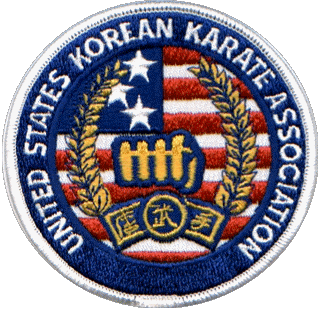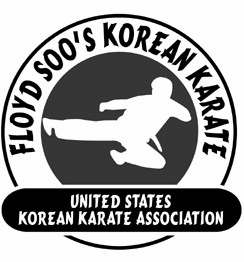 |
||||||||||||||||||||||||||||||||||
|
|
||||||||||||||||||||||||||||||||||
 |
|||
 |
|||
|
SKILLS DEVELOPMENT CYCLE There is a widely accepted doctrine of how people acquire skills. Even though this cycle is what people go through to gain skill at any activity, we will look at it here in reference to learning skills in our martial art. If you think back to your experience in learning Tang Soo Do (or any other martial art), I believe that you will be able to relate to some of these stages and maybe even recognize the stage you are going through at present. Understanding these phases of learning will enhance your goal of becoming proficient with the skills you desire. Let’s look at the four stages: The first stage is Unconscious Incompetence. Here, you have little or no experience. You don't even know what lies ahead, you are unaware of how uncoordinated you are going to feel as you learn how to "walk" in the 3 basic stances; or when you try to coordinate your hands and arms in the Basic Actions. You have no idea what you've gotten yourself into! (Example: “Using a typewriter looks easy!” or “Driving a stick shift can’t be THAT difficult!”) The second stage is Conscious Incompetence. As your awareness evolves into this stage, you begin to realize just how little you know and how tough the road that lies ahead is. In truth, Conscious Incompetence is a vital step in skill development; you can begin to determine your strengths and weaknesses. Much of your learning occurs here. (Why is the typewriter’s keyboard set up so crazy? I think henpecking is the way to go!” or “Let’s see, gas pedal, clutch pedal, shift lever, engine RPMs, stop sign at the top of a steep hill, a car right behind me; what do I do now???!!!”) Stage three is Conscious Competence. Here, your skills get better and your body works with your mind to integrate your basic actions, kicks and stances. This is becoming more enjoyable and exciting for you. You are now able to "walk" properly through your forms, basic actions and fighting in the proper stances. You are now able to move through these exercises without thinking about each individual motion. Now, you are able to concentrate more on the combinations; watch your opponent and react to what they are doing, etc. Your brain may occasionally go into overload, but in general, Conscious Competence is an enjoyable stage. Most people spend considerably more time here than in the first two stages. It is also a plateau where many students remain. (“OK, I’ve got this QWERTY thing down now, but sometimes I still have to look.” or “I’m cool with this stick shift now, it’s actually kinda fun; Dad, can I drive the Ferrari now?”) True mastery isn't attained until the fourth stage of skill development, Unconscious Competence. This is the place where there is little or no difference between what the body has practiced to perfection and what the mind has learned. You no longer think about your stance, your blocks, your punches, your kicks. Instead, you're free to respond to your opponent(s) without conscious thought. Others are amazed at how you seem to know what your opponent is going to do before he ever moves. Your forms flow smoothly with power and grace. You rarely seem to lose your balance, despite the difficulty of the combinations you use. Those who manage to reach this level of mastery are few indeed. (Typing close to 100 words per minute, while listening to someone dictate and wondering what you’re going to have for dinner later that night! or Formula One road racing in a 1500 hp Ferrari at the Monaco Grand Prix!) |
| [Home] [Master Floyd Soo] [Self Defense] [Club Information] [Warrior's Mindset] [NLP] [Skills Cycle] [Art & Founder] [Tang Soo Do Info] [Current Events] [Photo Album 1] [Photo Album 2] [Photo Album 3] [Photo Album 4] [Photo Album 5] [Photo Album 6] [Photo Album 7] [Photo Album 8] [Photo Album 9] [Photo Album 10] [Photo Album 11] [Photo Album 2012] [Photo Album BB Test] [Of Interest] [Inspiration] [Testimonials] [Class Schedule] [Pontiac Class] [Goodies] [Members Only] [Contact us & Links] |